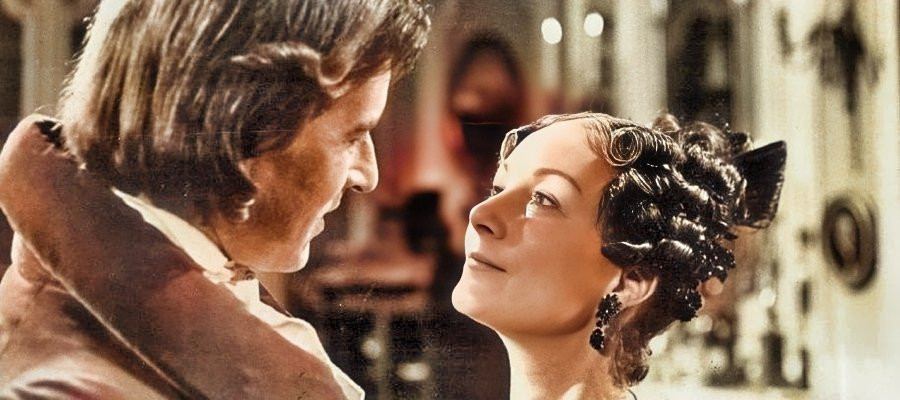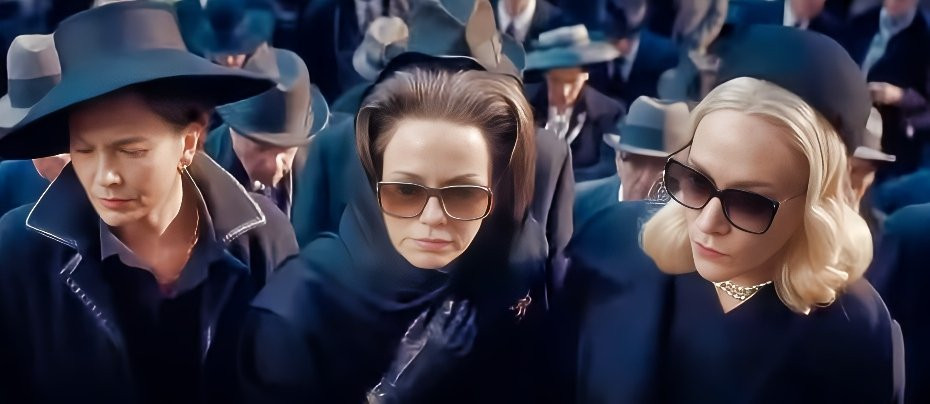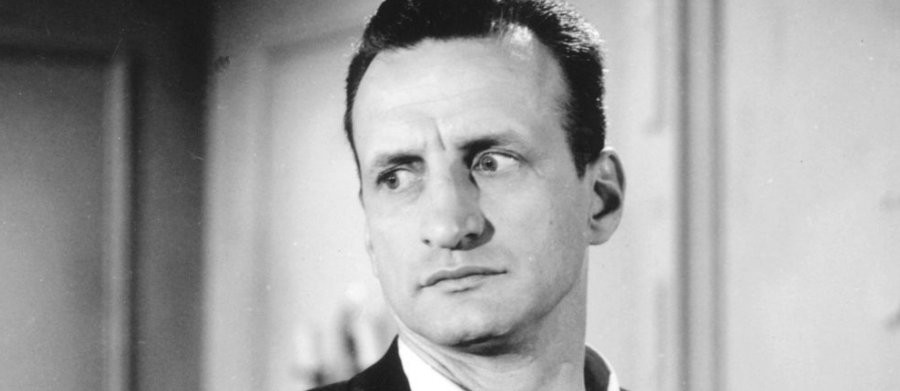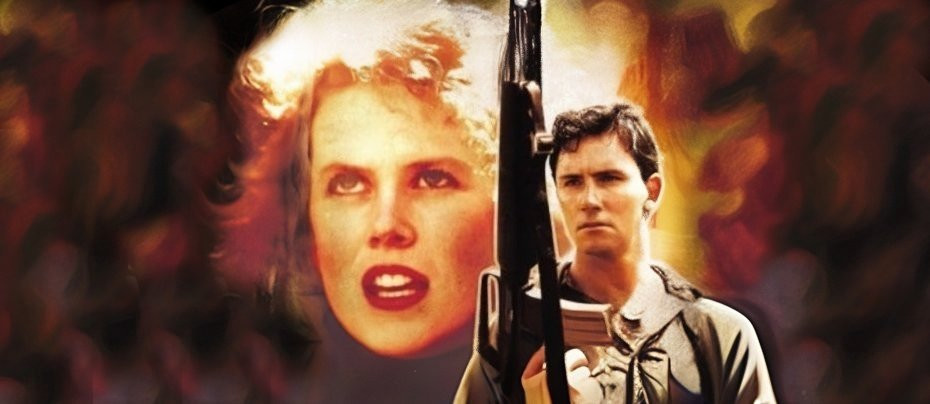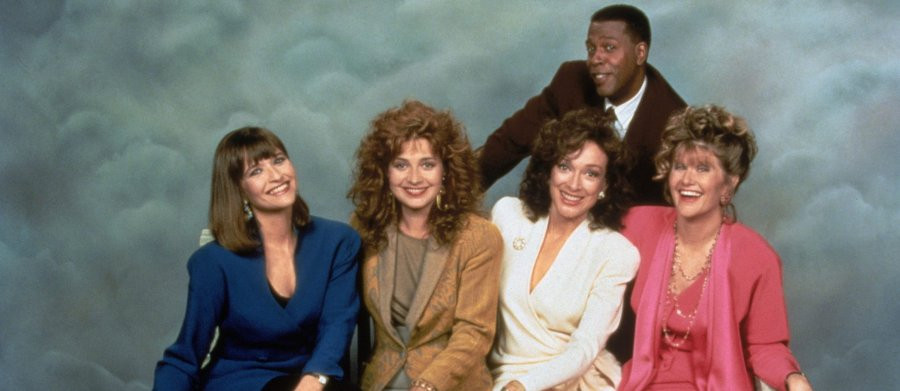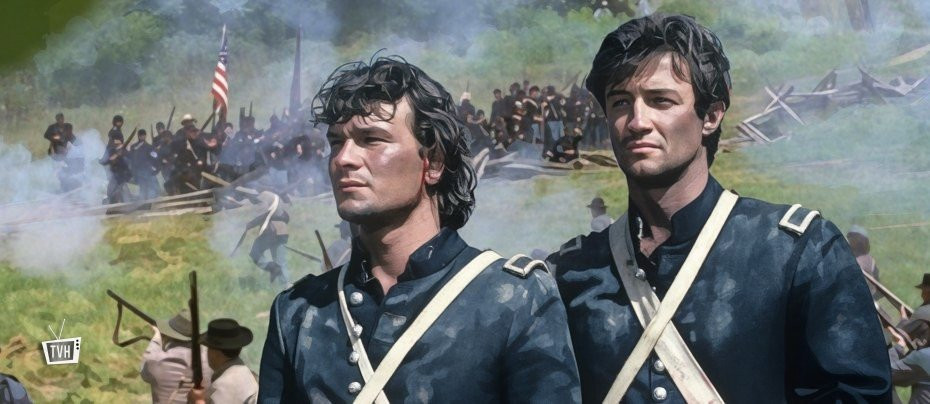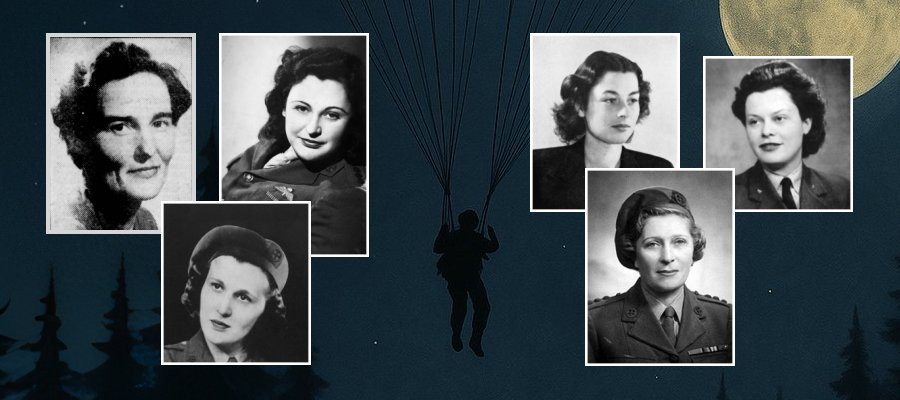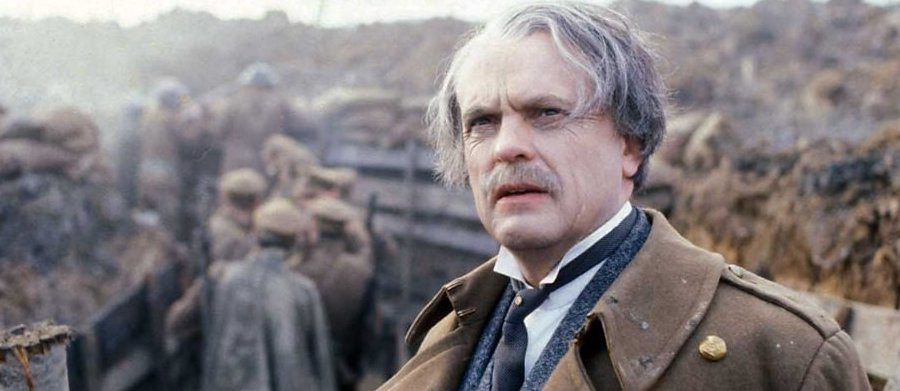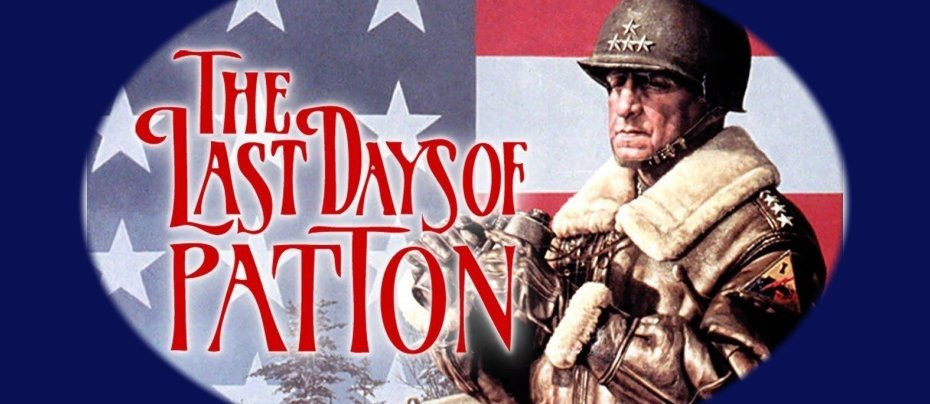
The Last Days of Patton
1986 - United StatesReview by John Winterson Richards
Although there is a long history of television spin-offs from successful feature films, The Last Days of Patton is worthy of note as the first time the sequel to a classic film was made specifically for a different medium as a television movie.
They do not get much more classic than Patton, a highly influential 1970 biopic that is frequently referenced and quoted to this day. It won seven US Academy Awards, including Best Picture, Director, Original Screenplay, and Actor. The last, won by George C. Scott in the title role, was the first ever to be declined by its recipient. Scott, who was well known around Malibu as something of a village curmudgeon, said it was because it was unfair to compare performances, but the story often told is that he had a chip in his shoulder about the Oscars after being passed over for The Hustler a few years before.
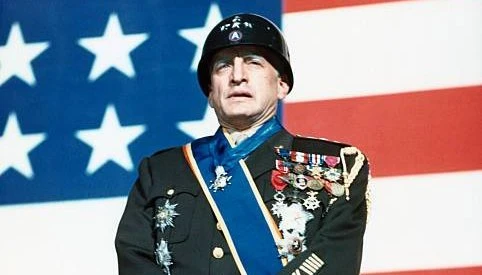
Given that the film has a very satisfying ending, the obvious question is why anyone felt a sequel was necessary sixteen years later. True, Ladislas Farago, who wrote the 1963 biography on which the film was based, had written a sequel of his own, also tilted The Last Days of Patton, published posthumously in 1981, but it was a straight retelling of the rather sad end to an illustrious life. It steers clear of the conspiracy theories about Patton's death that had proliferated in the paranoid period since Patton, forming the basis of the feature film Brass Target, to which it might be seen as a riposte. Commendable as this faithfulness to the facts might be, it is far less dramatic as a result and hardly the most commercial of propositions.
The undeniable fact is that not much happens in The Last Days of Patton. Where the original was a war film, complete with at least one full dress battle, the sequel takes up the story just after the end of the War. There is a bit of politicking, a party scene not for the faint hearted where Scott actually gets to sing, a famously minor road traffic accident, and - no spoiler because the title rather gives it away - a lengthy death bed sequence, and that is basically it.
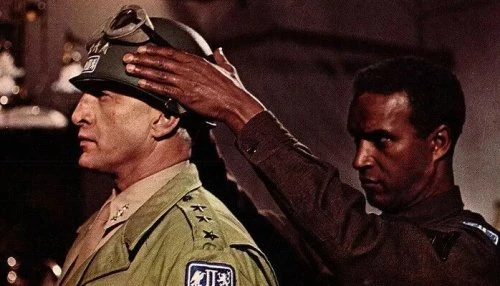
The television film never really decides what it is. It divides into two distinctly different halves. The first is an expansion of the melancholy closing scenes of the feature film, as the mighty warrior who was so admired in battle suddenly finds himself redundant, and out of his depth in the office politics that follows, when the War is over and he is no longer needed to fight. The second half is a standard "end of life" drama when an active and accomplished man has to come to terms with the steady contraction of his world as the possibilities of his life diminish.
The latter is the more compelling story and provides the main justification for the project. The script might have done better to make up its mind and focus on this aspect from the start. As it is, we have two separate half-films rather than a cohesive whole. Throwing in a few flashbacks to Patton's childhood and young manhood adds nothing, and indeed only draws attention to the script's lack of direction.
For all that, The Last Days of Patton is still worth watching - for one reason, and one reason only: the acting. George C. Scott is one of a relatively small number of "serious" actors to have become first division film stars. He bears comparison with the likes of Rod Steiger and Sir Daniel Day-Lewis in his deep commitment to all his work. At his best he is one of those rare players who do not appear to be playing but seem almost to become their characters.
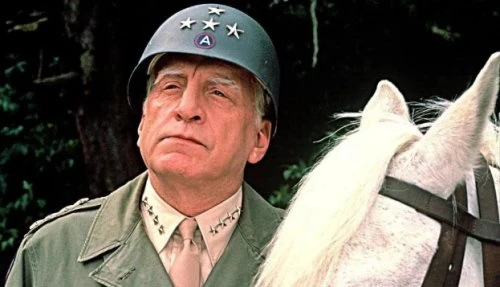
This is certainly true of his two performances as Patton, which became his signature role. In fact he became more Patton than Patton, who in real life was relatively scrawny and had a much higher pitched voice. When people now think of Patton with an imposing build and a deep growl they are actually thinking of Scott.
Much of the success of the feature was based on the realisation that the most interesting thing about Patton was the complex character behind the carefully curated image of the double alpha male, not the image itself, and the contrast between them. He was, as The Last Days of Patton reminds us, an "uber-jock" who competed in the modern pentathlon at the 1912 Olympics and yet an intellectual, a military innovator fascinated by history, and a foul-mouthed bully who memorised, quoted, and even wrote sensitive poetry. He saw no contradiction between a sincere Christian faith and a belief in reincarnation - or, it has been suggested, an attitude to women that undermines his own romantic ideal of a knight always true to his lady.
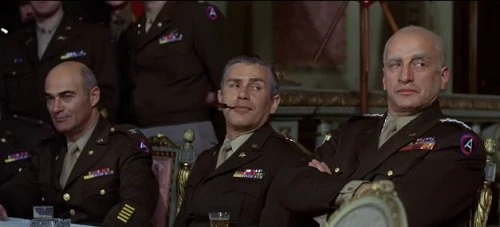
The script leans in to the allegation that he had an affair with his wife's niece. It should be noted that many historians do not believe this to be true. The strongest evidence was presented in another book published in 1981, The War Between the Generals by David Irving. Even before he went completely fruit loops towards the end of the Eighties, Irving was a controversial figure among historians, but at this stage in his career he did have the reputation of being a diligent researcher. He managed to decipher the private diary of a rival general who made the allegations. Whether this general was in a position to be certain is another matter.
The sequel does better when it contradicts any impression given by the original that Patton was an eccentric loner. He was a sociable man who forged deep friendships with many fellow officers in the much smaller professional US Army between the Wars. Among them was Dwight D. Eisenhower to whom he was very supportive when they held the same rank in the fledgling armoured branch just after the First World War. Patton was older than Eisenhower and senior to him for most of their careers, a fact that puts their prickly relationship during the War in context. Patton was unusually old for a modern general, commanding an army in the field for the first time in his late fifties. At one point Patton's wife is reading how many of the great generals of history, such as Napoleon and Alexander, were at their peak as very young men. Nothing is said to emphasise the point, but the contrast is visible. Patton was only sixty when he died and Scott was slightly younger when he played him in the sequel - but looks older. This ageing, emphasised by Emmy winning make up, was presumably the same deliberate choice made in the original film which was made when Scott was still in his forties playing Patton approaching sixty.
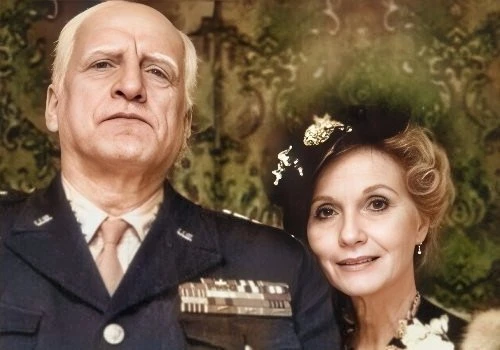
Scott seems to enjoy the opportunity to explore his most famous character in greater depth. He is backed by a strong supporting cast. Eva Marie Saint is luminous as ever as his wife (at the time of writing she is still with us, having just reached 100, the last of the Golden Age of Hollywood). Murray Hamilton, looking rough in one of his final roles before his tragically premature death, and the reliable British-based Canadian Paul Maxwell look authentic as two of Patton's most trusted subordinates who were also personal friends. Ed Lauter and Daniel Benzali (Murder One) are among the surgeons fighting to save him. Richard Dysart (LA Law) captures the essence of Eisenhower very effectively despite looking nothing like him.
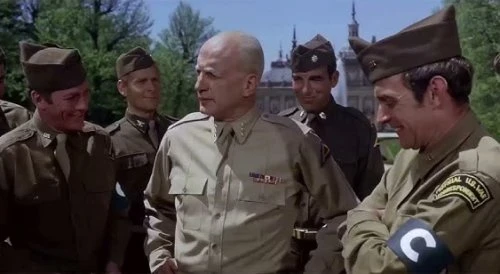
It is only to be expected than the television production is less spectacular than that of the cinematic epic. Location filming took place in the United Kingdom, with the bombastic and slightly disconcerting Harlaxton Manor in Lincolnshire standing in credibly for a Bavarian schloss. The extras in the biggest scenes, welcoming and farewell parades at the Hall, were apparently serving personnel from a nearby US Air Force base. Otherwise The Last Days of Patton is an intimate, character driven drama. Those expecting Patton II might be disappointed, but then so was Patton - he never got his own sequel with the Soviets. Yet taken on its own terms, as an actor's piece, The Last Days of Patton is a moving study of age and mortality.
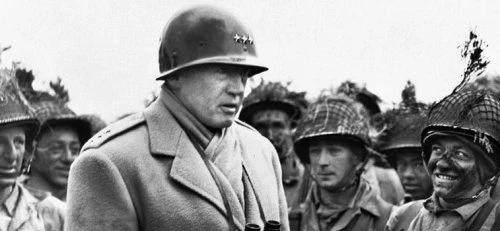
Seen this show? How do you rate it?
Seen this show? How do you rate it?
Published on December 15th, 2024. Written by John Winterson Richards for Television Heaven.


